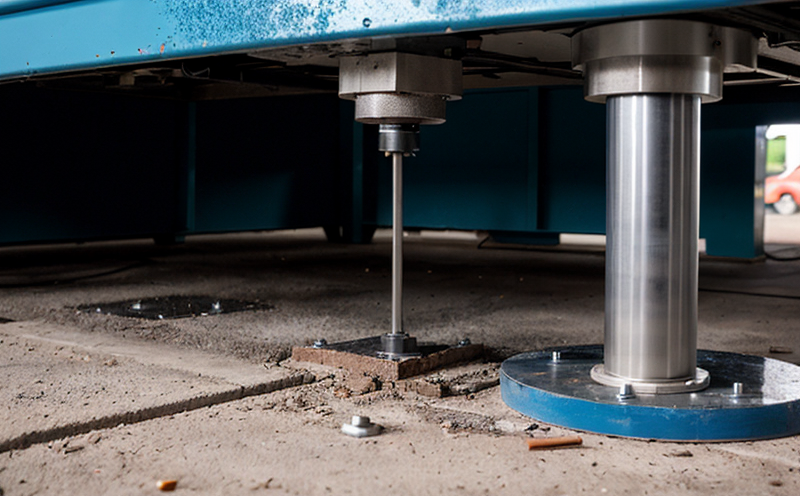ISO 22007-4 Thermal Stress Analysis in Polymers
The ISO 22007 standard series provides a framework for testing and qualifying parts produced by additive manufacturing (AM) processes. Specifically, ISO 22007-4 focuses on thermal stress analysis of polymers used in AM. This service is essential for ensuring the integrity and performance of polymer components under temperature variations that they might encounter during their operational lifecycle.
The process involves subjecting a sample to controlled heating and cooling cycles, followed by detailed analysis using advanced optical or mechanical methods. The aim is to quantify residual stresses and distortions within the material, which can significantly impact part performance and longevity. This service is particularly relevant for industries such as aerospace, automotive, medical devices, and consumer electronics.
Residual stress in polymers can arise from various factors including manufacturing processes like 3D printing, post-processing treatments, or environmental influences. Identifying and managing these stresses through thermal cycling tests allows manufacturers to optimize part design and production techniques for better reliability and durability.
The testing protocol outlined in ISO 22007-4 involves several critical steps:
- Sample preparation: Ensures uniformity across samples to minimize variability.
- Thermal cycling: Subjecting the sample to repeated heating and cooling cycles at specified temperatures and rates.
- Data acquisition: Utilizing non-destructive testing methods such as laser-induced fluorescence or X-ray diffraction to measure internal stresses and distortions.
- Data analysis: Applying statistical and computational techniques to interpret the collected data, correlating it with known material properties and expected failure modes.
Understanding these stresses is crucial for predicting potential issues like warping during manufacturing or cracking under operational loads. Accurate measurement of thermal-induced distortions helps in refining AM processes and selecting appropriate materials that meet stringent performance requirements.
The results of this analysis can guide improvements in additive manufacturing techniques, material selection, and design optimization. For instance, manufacturers can identify which polymers are best suited for specific applications based on their thermal stability and stress resistance properties.
Compliance with ISO 22007-4 ensures that products meet international quality standards, enhancing trust among customers and stakeholders. This service is particularly valuable for companies aiming to innovate in AM technology or those looking to ensure compliance with regulatory requirements.
Applied Standards
The ISO 22007-4 thermal stress analysis standard is part of a broader framework that addresses the quality assurance and qualification of parts produced by additive manufacturing processes. This series includes standards for dimensional stability, surface finish, mechanical properties, and now thermal stress characterization.
For polymer materials specifically, compliance with ISO 22007-4 ensures that manufacturers adhere to internationally recognized best practices in evaluating the effects of temperature on part integrity. This standard is complemented by other relevant international standards such as ASTM D792, which provides methods for determining properties like density and apparent porosity of plastics.
The adoption of ISO 22007-4 across industries fosters consistency and interoperability in the AM ecosystem, enabling seamless integration between suppliers and end-users. By adhering to these standards, companies can enhance their reputation for quality and reliability, thereby gaining a competitive edge in global markets.
Customer Impact and Satisfaction
The implementation of ISO 22007-4 thermal stress analysis significantly enhances customer satisfaction by addressing critical aspects of part performance and longevity. For customers seeking to innovate or comply with regulatory requirements, this service provides the necessary data to make informed decisions about material selection and process optimization.
By ensuring that parts meet stringent international quality standards, companies can build trust with their clients and partners. This not only improves market reputation but also facilitates smoother supply chain operations by reducing the risk of defects or failures in end products.
For quality managers and compliance officers, ISO 22007-4 offers a robust framework for evaluating AM processes and materials. The detailed insights provided by this analysis enable proactive problem-solving, leading to more efficient manufacturing practices and enhanced product performance. This ultimately translates into higher customer satisfaction levels and increased market share.
R&D engineers benefit from the ability to refine their designs based on real-world stress data, which can lead to breakthrough innovations in polymer-based AM parts. Procurement teams can use these insights to select suppliers who deliver consistently high-quality materials, ensuring that end products meet or exceed customer expectations.
Use Cases and Application Examples
- Aerospace Industry: Ensuring the integrity of polymer components used in aircraft structures subjected to extreme temperature changes during flight.
- Automotive Sector: Evaluating the performance of thermoplastic parts exposed to varying temperatures throughout their operational environment.
- Medical Devices: Assessing biocompatible polymers for implants that may experience thermal cycling due to body temperature variations.
- Consumer Electronics: Testing polymer enclosures and casings subjected to environmental conditions that affect thermal stability.
- Bioengineering: Analyzing the stress behavior of polymers in bioprosthetic devices to ensure safe and effective performance under physiological conditions.
- Recreational Equipment: Verifying the durability of polymer components used in outdoor equipment exposed to wide temperature ranges.
In each of these cases, ISO 22007-4 thermal stress analysis provides critical data that informs design and manufacturing decisions, ensuring products can withstand the rigors of their intended use environments. This service is instrumental in maintaining high standards across diverse applications where polymer components play a crucial role.





